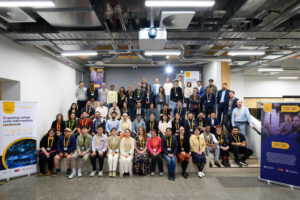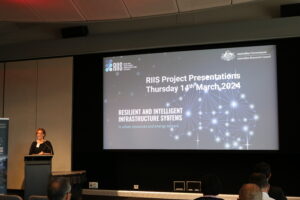 A year after formation, the RIIS Hub team has gathered in person in Sydney to share milestone progress across the Hub’s five Research Themes and supporting projects.
A year after formation, the RIIS Hub team has gathered in person in Sydney to share milestone progress across the Hub’s five Research Themes and supporting projects.
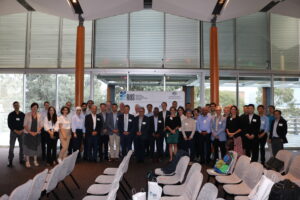
Opening the event, RIIS Hub Director Professor Nasser Khalili welcomed team members from UNSW Sydney, University of Western Sydney, QUT, University of Melbourne at this first in-person gathering of the growing team, and set the scene for the project updates that followed.
“We are firing on all cylinders, with ninety percent of RIIS Hub projects having started, or about to start, with the support of 22 world-leading professors, 4 post-doctoral fellows, 19 PhD students, multiple partners and the support and collaboration of many others,” Prof. Khalili shared.
Industry partners play a key role in ensuring RIIS Hub projects directly address and solve pressing infrastructure maintenance and industry health and safety challenges, and many were represented in person in the room, or joined via video link. Prof. Khalili encouraging industry that if a research project could benefit an organisation, or people have an interest or ideas for a project presented, to “let us know”, and that their involvement would be “wonderful”.
Throughout the day, RIIS research hub members shared the progress status of projects and research underway or at scoping stage; starting with the problem to be solved, and the potential of science and innovation to transform advanced manufacturing, service, and infrastructure engineering in Australia.
The collaborative, future-focused environment, unique to RIIS Hub was on full display, with the event enabling many team members to meet in person for the first time or reconnect in a dynamic forum for information sharing and learning.
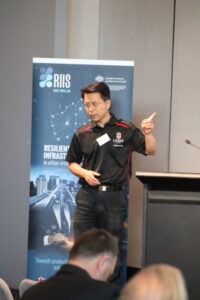 Dr Binghao Li (UNSW) alluded to the RIIS Hub purpose by explaining that teams were working towards, “productive, connected, sustainable and smart infrastructure solutions”.
Dr Binghao Li (UNSW) alluded to the RIIS Hub purpose by explaining that teams were working towards, “productive, connected, sustainable and smart infrastructure solutions”.
Also attended by industry partners, the event elevated multiple key challenges being addressed by RIIS associated with maintaining and improving wide-ranging public infrastructure in Australia.
‘Thinking big’ with the audience of science and industry innovators, Professor Wei Gao challenged and reminded that “brave ideas” from the team and partners will improve our world.
Projects overviewed, speed-dating style, were wide-reaching and inherently practical. Topics being addressed by research and system evolution covered corrosion, cleaning and maintenance solutions for infrastructure, along predictive structural integrity solutions and challenges, as well as new ways to address issues associated with aging and/or water-based environments for bridges, buildings, pylons and transport systems. Better health and safety solutions for people working on mine sites were overviewed, as well as new ways to deliver cost- and energy-efficiency to workplaces and homes based on sensor collectors and smarter energy and time-saving solutions and other smart systems.
Multiple RIIS Hub projects harness intelligent systems. The application of cutting edge innovation, including nano sensors, automation, predictive computational modelling, computer generated 3D and enhanced imagery, machine learning, artificial intelligence (AI) and robotics are a feature of many projects, and Prof. Khalili warmly introduced Dr Mohsen Mousavi on the day as the Hub’s “AI guru”.
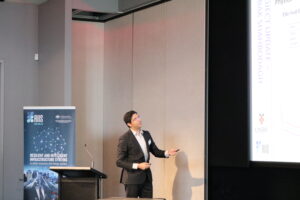 Chief Investigator Dr Babak Shahbodagh (UNSW) shared that data and physics is informing testing models of some AI frameworks, and that ‘real world’ data is training the system along with complex science, thereby making them “more efficient than existing systems”, and hinting at the computational complexity behind the early advances.
Chief Investigator Dr Babak Shahbodagh (UNSW) shared that data and physics is informing testing models of some AI frameworks, and that ‘real world’ data is training the system along with complex science, thereby making them “more efficient than existing systems”, and hinting at the computational complexity behind the early advances.
Fundamental scientific discoveries made in some projects will be able to be applied and leveraged in others, as the information is widely shared across Hub researchers, teams and Research Themes.
A presentation featuring industry partner representative James Linke, Director, Financial Manager, Chief Controller of GEOAI, about how they are working with RIIS researchers on a landmark 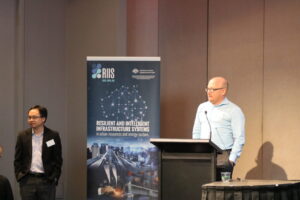 (airport infrastructure) project in Australia was a highlight of the day. Research discovery and application, partner collaborations and client/commercial perspectives was shared as a case study with a ‘win-win-win’ outcome across multiple stakeholders. Closing the session, Mr Linke thanked RIIS team “for a great opportunity to be part of something that’s going to change the industry”.
(airport infrastructure) project in Australia was a highlight of the day. Research discovery and application, partner collaborations and client/commercial perspectives was shared as a case study with a ‘win-win-win’ outcome across multiple stakeholders. Closing the session, Mr Linke thanked RIIS team “for a great opportunity to be part of something that’s going to change the industry”.
The value of the collective idea sharing and digging deep into the science in-person was apparent during highly engaging Q&A sessions, especially on the ‘hot topic’ of ‘digital twinning’. RIIS Hub may be able to shape a consistent definition in a fast-moving technology-driven landscape.
Theme overviews follow, noting more information about RIIS Hub, our team, partners and research can be found on our website: www.riis.org.au.
Theme 1 https://riis.org.au/research/ubiquitous-sensing-intelligent-and-adaptive-systems/
Theme 2 https://riis.org.au/research/data-collection-security-and-integration/
Theme 3 https://riis.org.au/research/modelling-simulations-and-prognostics/
Theme 4 https://riis.org.au/research/infrastructure-health-monitoring-and-predictive-maintenance/
Theme 5 https://riis.org.au/research/spatial-data-infrastructures-digital-twin-and-decision-support/
Presentation slides below
FINAL 14th March Combined Presentation PART 1
FINAL 14th March Combined Presentation PART 2
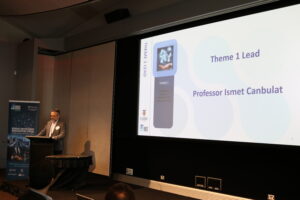
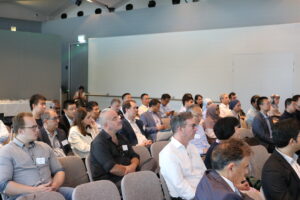
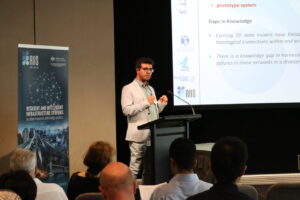
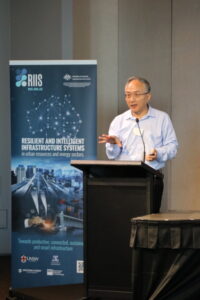
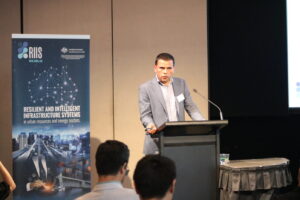
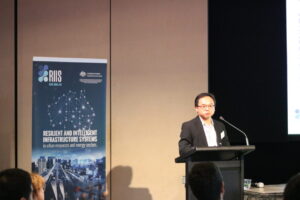
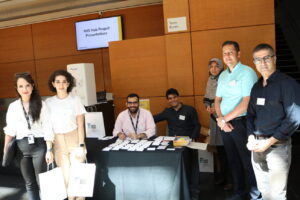
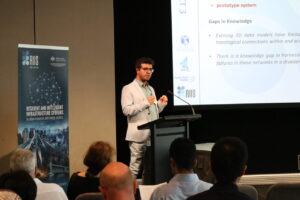
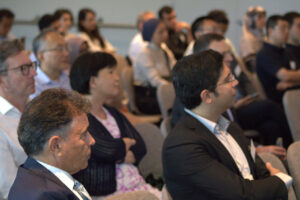
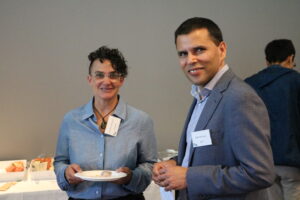
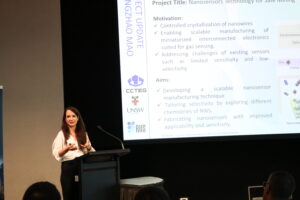
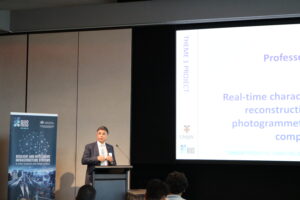
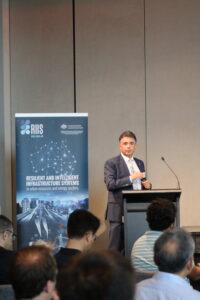
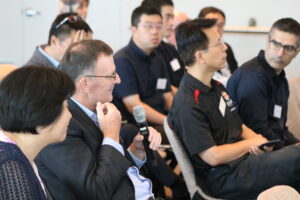
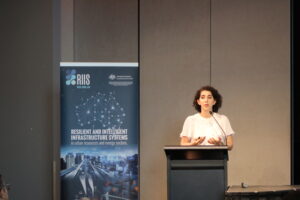

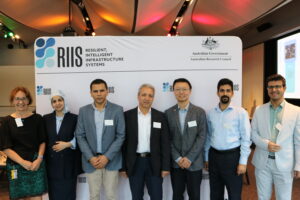
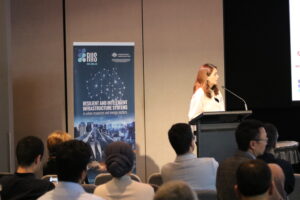
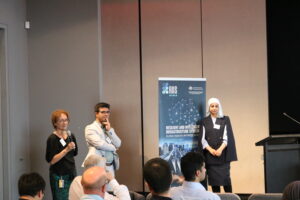
RIIS Event Photographer – Sina Akhyani
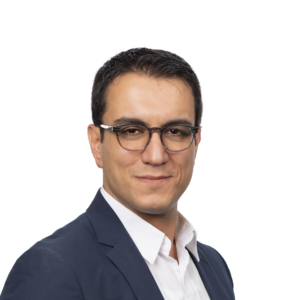 Our newest member to our RIIS hub is Amir Fila.
Our newest member to our RIIS hub is Amir Fila. mir’s thesis topic is “Investigating advanced methods for point cloud segmentation and processing to support near-real-time infrastructure and asset modelling, management, maintenance, and resilience.”
mir’s thesis topic is “Investigating advanced methods for point cloud segmentation and processing to support near-real-time infrastructure and asset modelling, management, maintenance, and resilience.”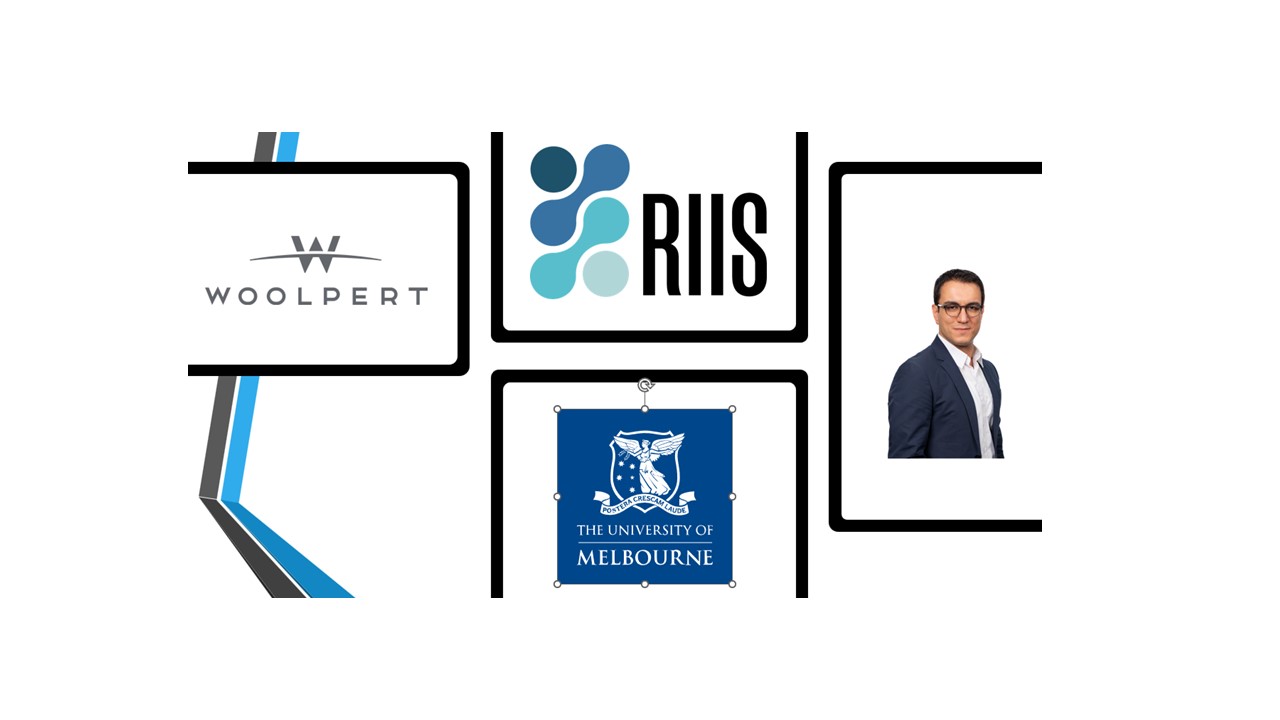
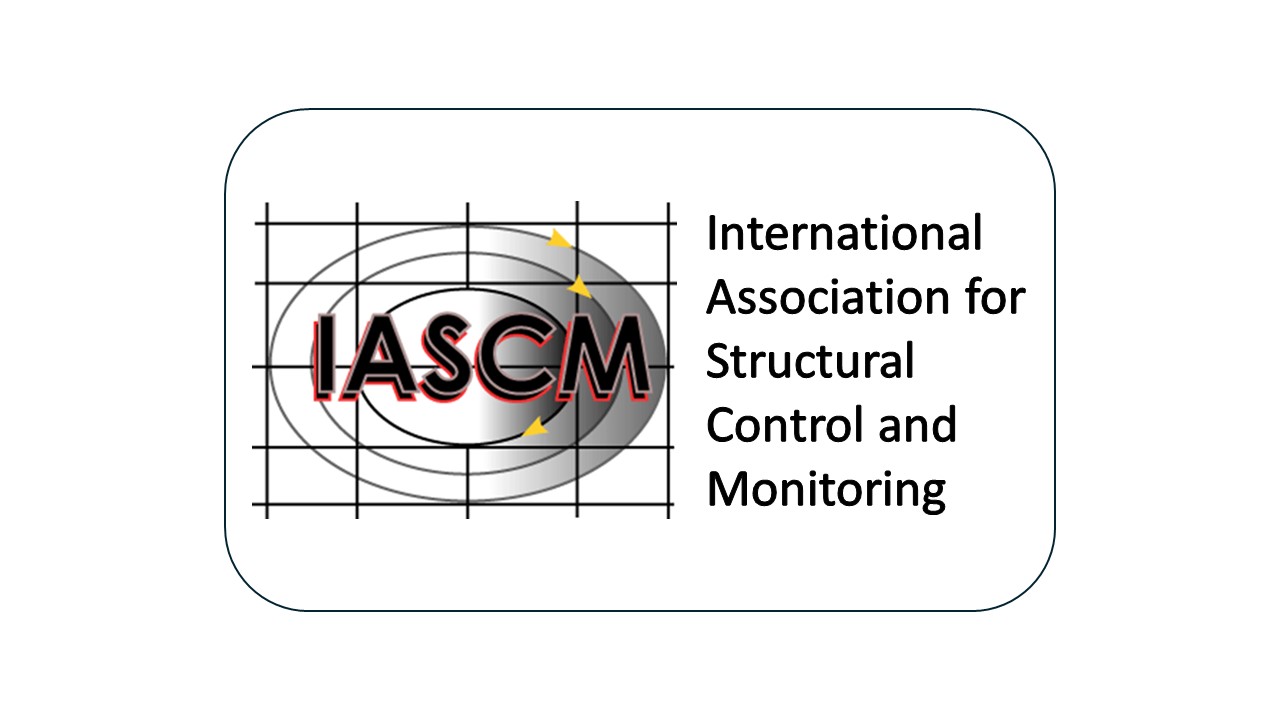
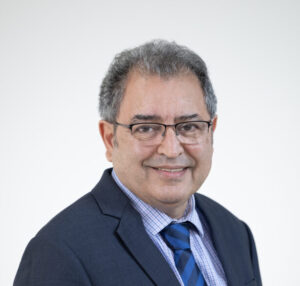
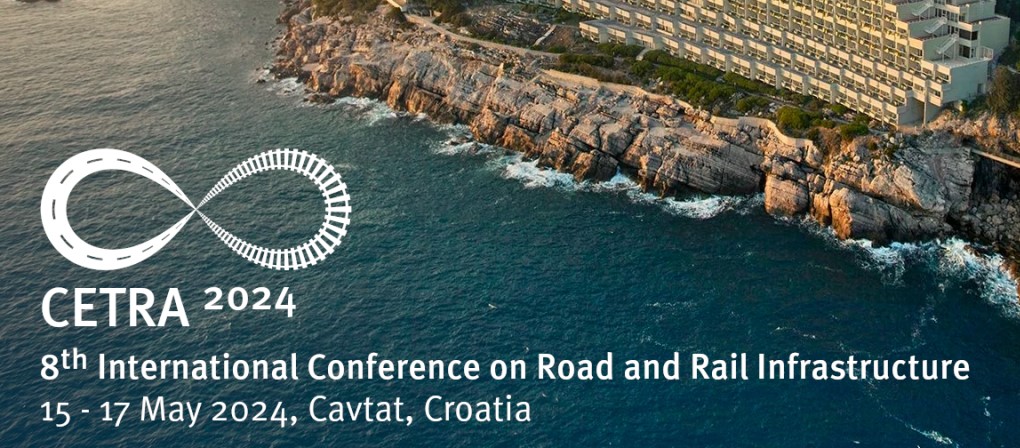

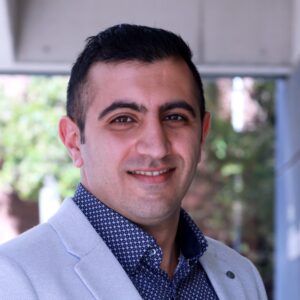
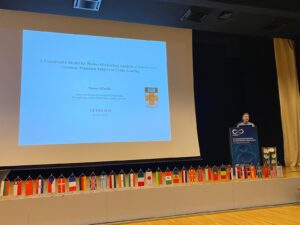

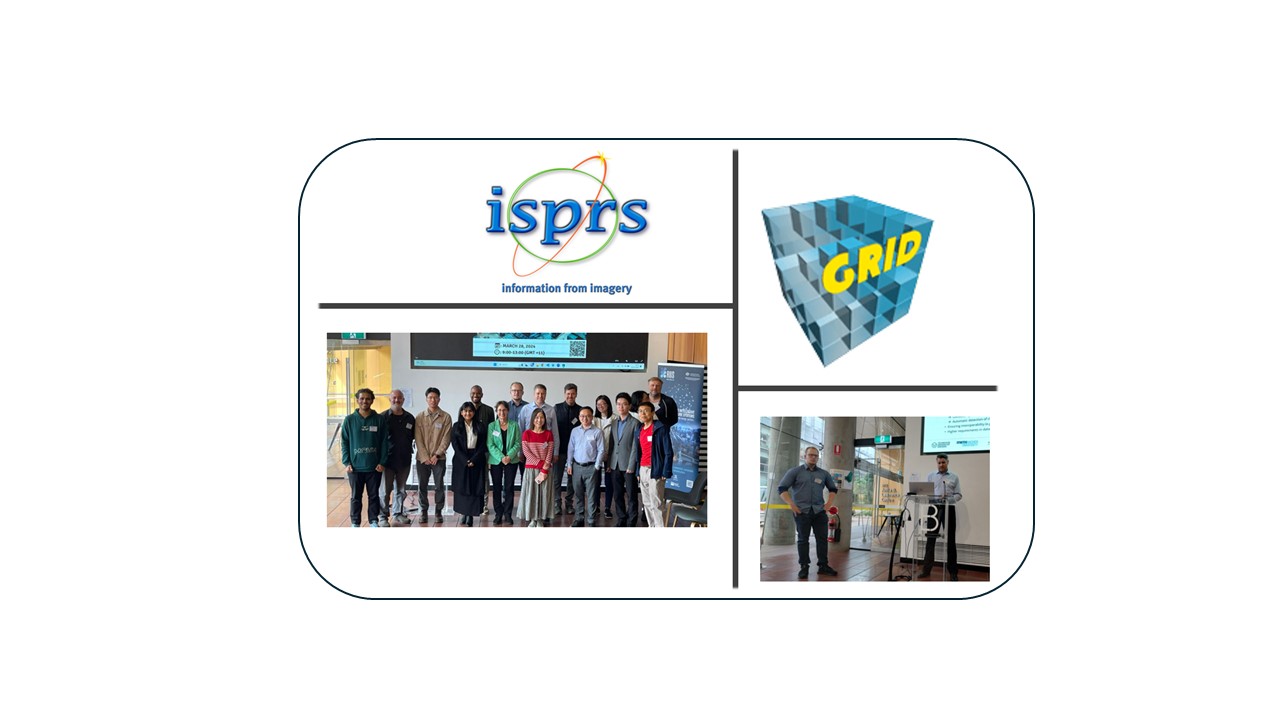
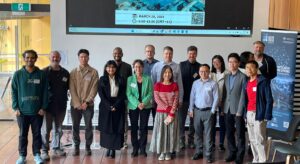
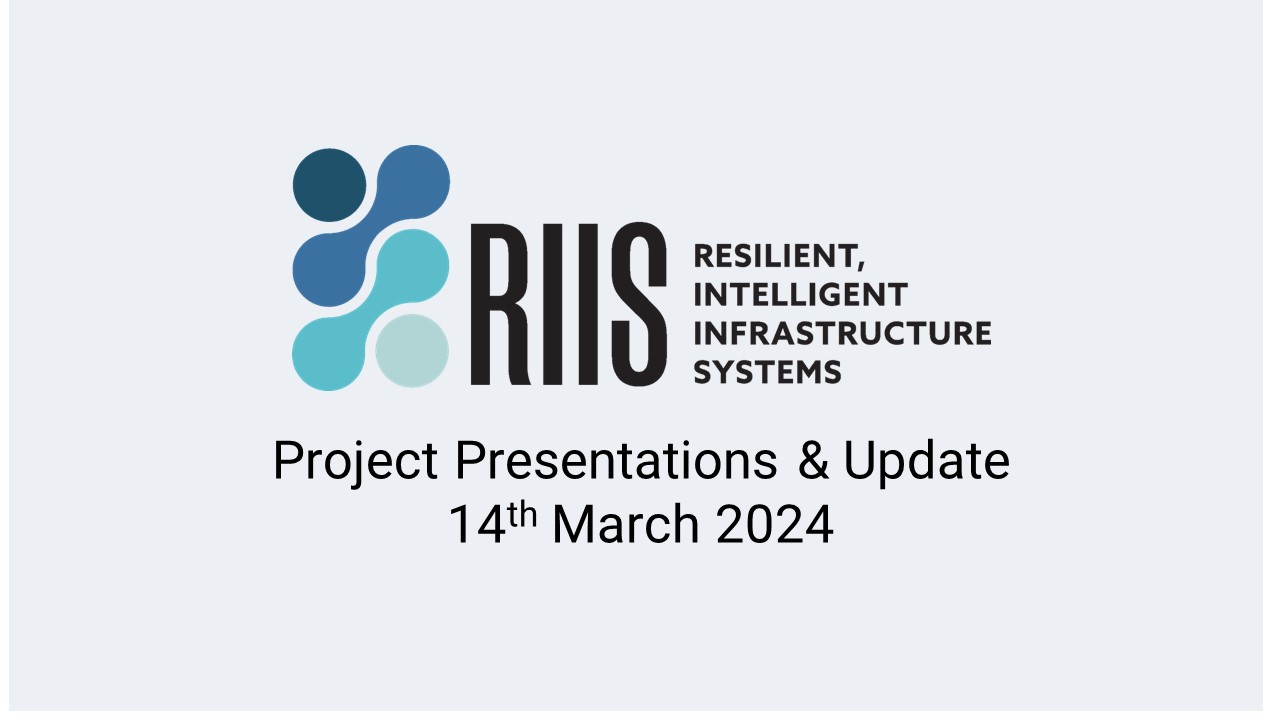
 A year after formation, the RIIS Hub team has gathered in person in Sydney to share milestone progress across the Hub’s five Research Themes and supporting projects.
A year after formation, the RIIS Hub team has gathered in person in Sydney to share milestone progress across the Hub’s five Research Themes and supporting projects.

 Chief Investigator
Chief Investigator  (airport infrastructure) project in Australia was a highlight of the day. Research discovery and application, partner collaborations and client/commercial perspectives was shared as a case study with a ‘win-win-win’ outcome across multiple stakeholders. Closing the session, Mr Linke thanked RIIS team “for a great opportunity to be part of something that’s going to change the industry”.
(airport infrastructure) project in Australia was a highlight of the day. Research discovery and application, partner collaborations and client/commercial perspectives was shared as a case study with a ‘win-win-win’ outcome across multiple stakeholders. Closing the session, Mr Linke thanked RIIS team “for a great opportunity to be part of something that’s going to change the industry”.

















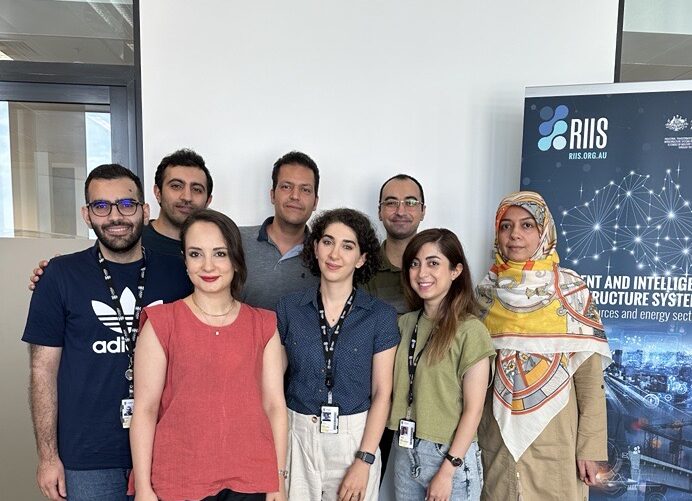
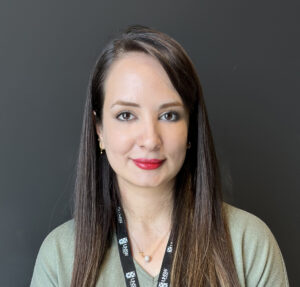
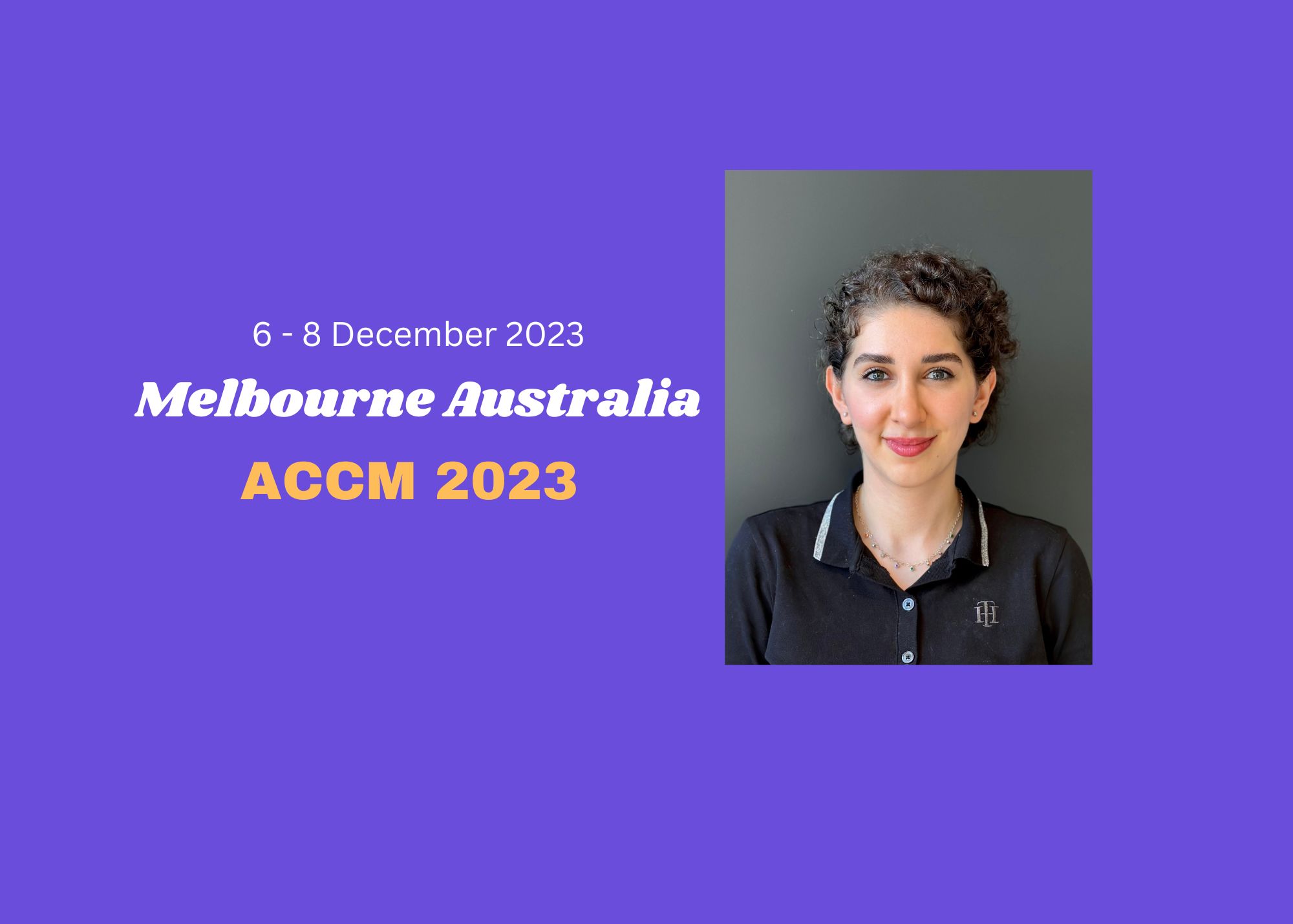
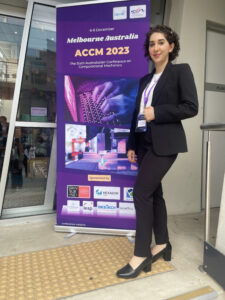 UNSW RIIS student
UNSW RIIS student 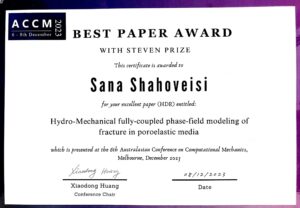

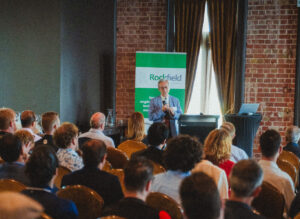 On Day 1, the Workshop was opened with the Welcoming Speeches by Cr Jenny Hill, Mayor of Townsville City Council and Prof Jenny Seddon, Deputy CV Research of JCU and
On Day 1, the Workshop was opened with the Welcoming Speeches by Cr Jenny Hill, Mayor of Townsville City Council and Prof Jenny Seddon, Deputy CV Research of JCU and 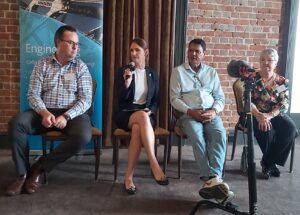
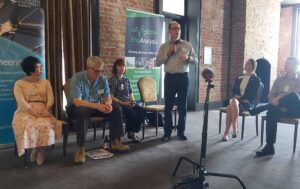
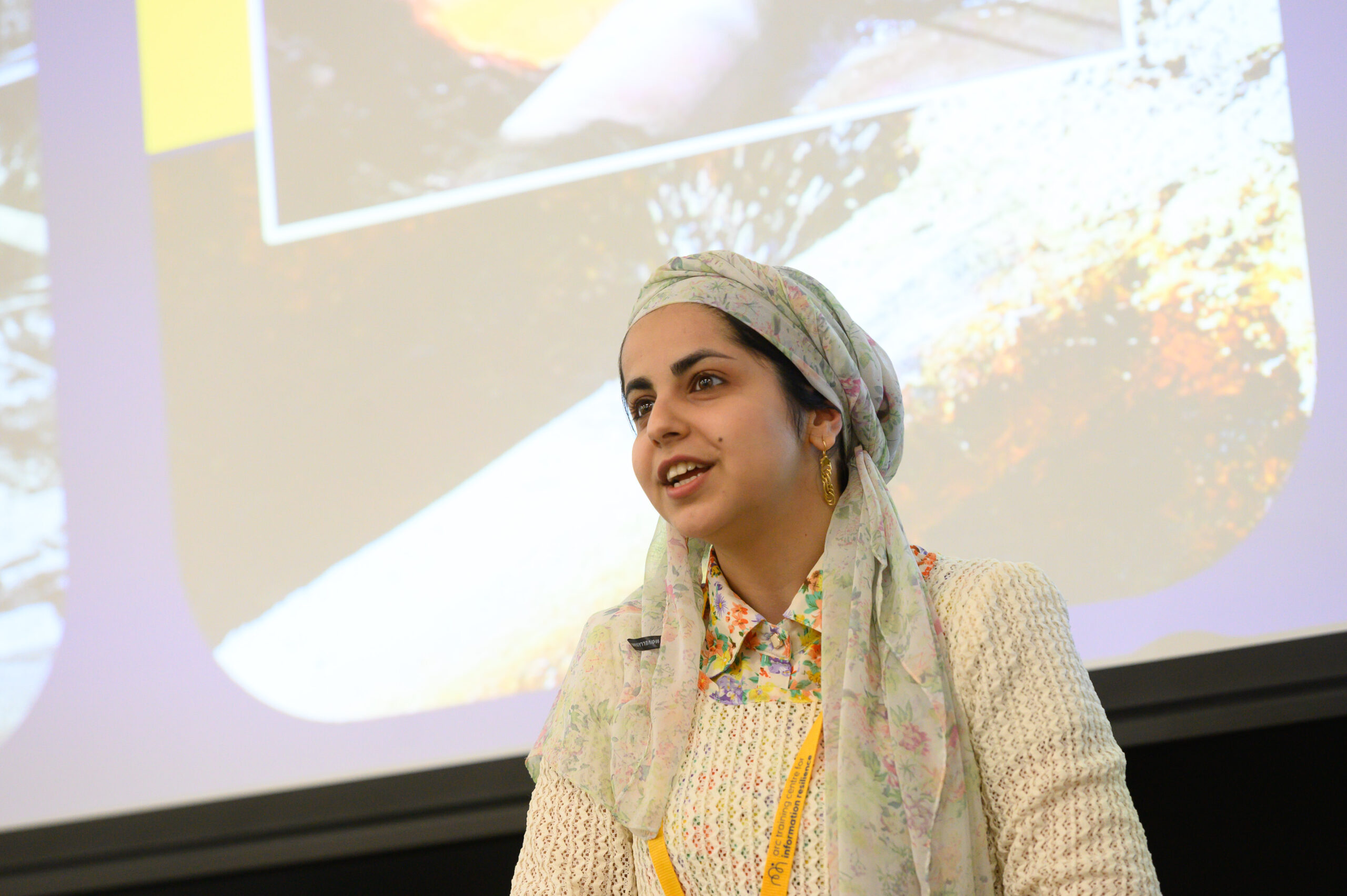
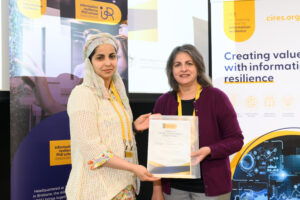
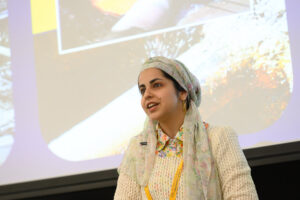
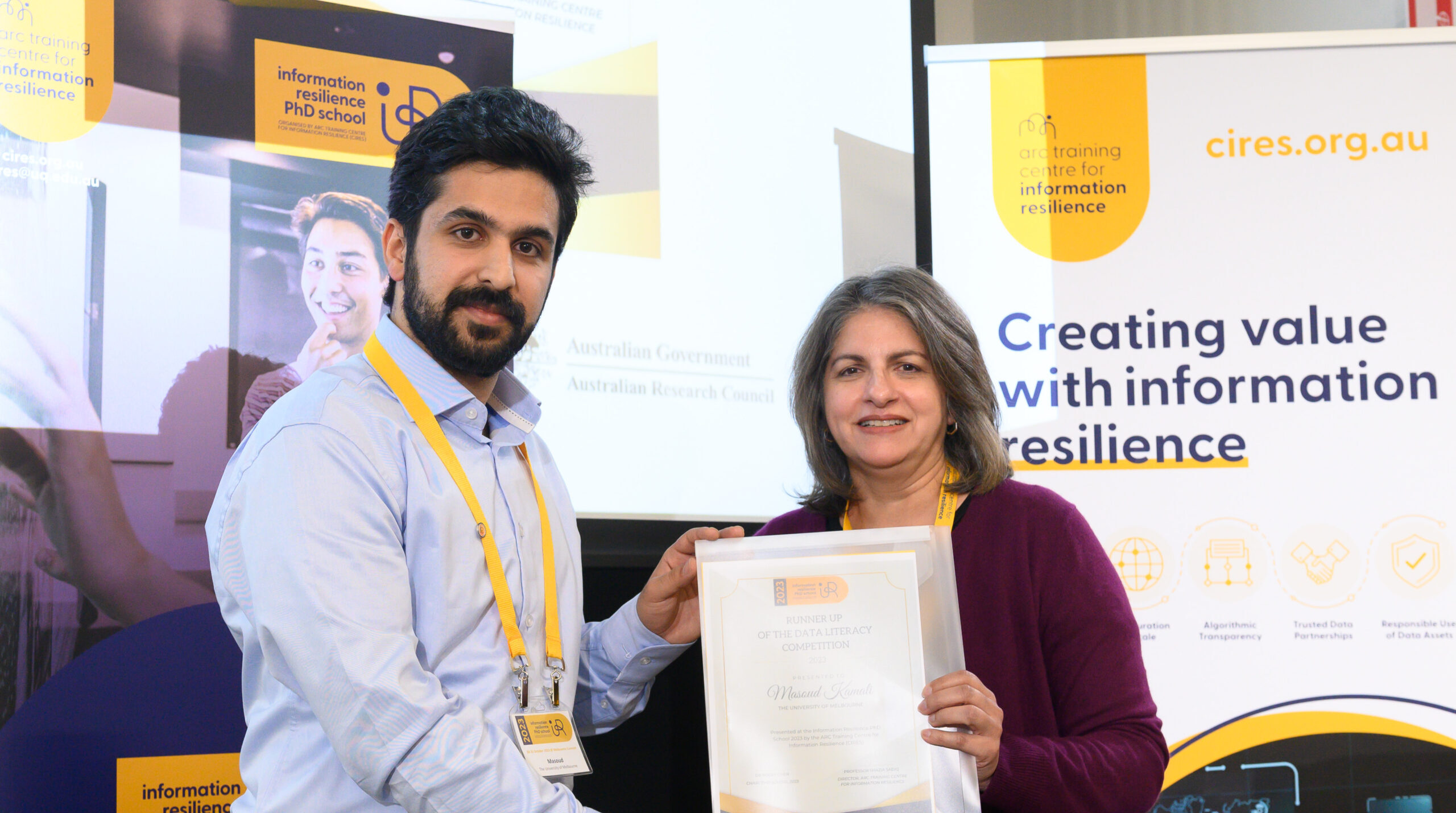
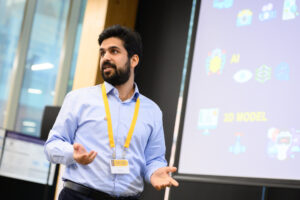 Masoud Kamali
Masoud Kamali